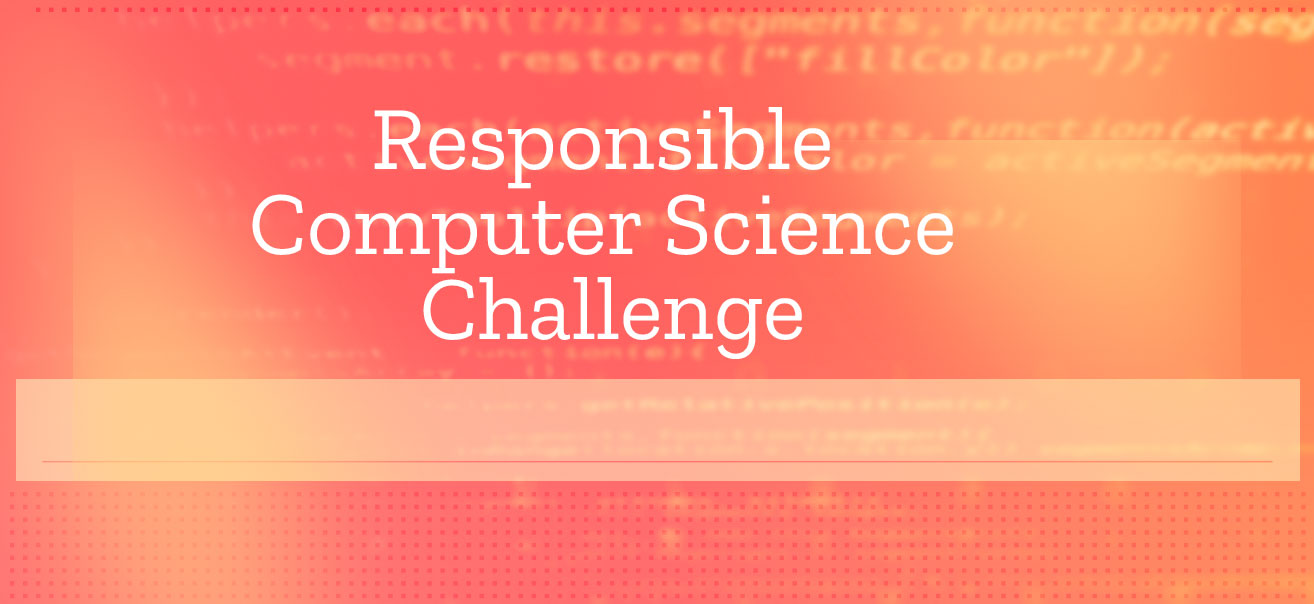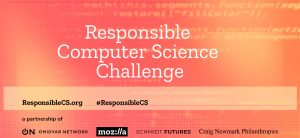
Responsible Computer Science Challenge.
Bemidji State University is one of 17 Stage 1 winners of the Responsible Computer Science Challenge and will help computer science faculty incorporate lessons on the social and ethical impacts of technology into their courses.
The $3.5 million challenge, launched in October 2018, is run by Omidyar Network, Mozilla, Schmidt Futures and Craig Newmark Philanthropies and runs through 2021. It called on computer scientists to develop concepts for integrating ethics into existing undergraduate computer science courses by changing syllabi to include ethics-related readings or exercises, or by adjusting teaching methodologies.

As a Stage 1 winner, BSU will receive $150,000 to pursue its proposal, the maximum grant available. Stage 1 recipients received a total of $2.4 million to fund their proposals, with $1.1 million remaining to fund Stage 2 projects. Schools advancing to Stage 2, which will be announced in winter of 2020, will receive up to $200,000 in additional funding to further develop and scale their projects.
“Our vision stems from concerns that computing work environments often do not support open discussion of social and ethical concerns,” Dr. Marty J. Wolf, professor of computer science at Bemidji State, said. “Such an environment requires computing professionals who are practiced in thinking about these concerns and having these sorts of conversations.“
Wolf and Dr. Colleen Greer, professor of sociology at BSU, will partner with teaching universities where computer science faculty are open to the idea of incorporating concepts of ethical and social responsibility into their courses, and where humanities and social science faculty have an interest in ethical issues related to technology. Wolf and Greer will then create and deliver a workshop that will help those faculty collaborate to develop the materials necessary to incorporate these concepts into their courses.
Wolf and Greer said the workshop will address strategies for communicating technical ideas and cross-discipline collaboration techniques while providing opportunities for faculty at the partner institutions to build close relationships with faculty in other departments on their campuses.
“Our focus on computer science departments at teaching universities is meant to engage change in an often overlooked group of faculty,” Wolf said.
While the project’s goal is to enable and empower computer science faculty to emphasize ethical practices in their classrooms, Greer said the project could greatly benefit humanities and social science faculty as well.
“As humanities and social science faculty better understand computing, they are in a position to guide their students to reasonable expectations surrounding privacy, data integrity, trolling, fake news, Internet control and other social issues surrounding the Internet,” she said.
She said the project’s broad scope is necessary in order to realize its overarching goal — to train an entire generation of computer science students to treat ethical and social considerations of technology as the norm.
“We recognize that a single exposure to social and ethical thinking likely would have little impact,” Greer said. “This project could reach many thousands of students in a deep, meaningful way.”
The Challenge is an ambitious initiative to integrate ethics into undergraduate computer science courses and teaching methods at U.S. colleges and universities, with the hope that coursework can be implemented and scaled to colleges and universities across the country — and beyond.
“Today’s computer scientists write code with the potential to affect billions of people’s privacy, security, equality and well-being,” Kathy Pham, computer scientist, Mozilla Fellow and challenge co-leader, said. “Technology today can influence what journalism we read and what political discussions we engage with; whether or not we qualify for a mortgage or insurance policy; how results about us come up in an online search; whether we are released on bail or have to stay; and so much more.”
Projects were judged by an external review committee of academics, tech industry leaders and others who use evaluation criteria developed jointly by Mozilla and Omidyar Network.
Contacts
- Dr. Marty J. Wolf, professor of computer science, Bemidji State University (218) 755-2825, marty.wolf@bemidjistate.edu
- Dr. Colleen Greer, professor of sociology, Bemidji State University, (218) 755-2829, colleen.greer@bemidjistate.edu
- Mozilla and Omidyar Network are available for interviews; please contact Kevin Zawacki, Mozilla Foundation, (914) 837-4333, kevin@mozillafoundation.org
Links
- Bemidji State University
- Responsible Computer Science Challenge
- Responsible Computer Science Challenge Stage 1 winners
 Bemidji State University, located amid the lakes and forests of northern Minnesota, occupies a wooded campus along the shore of Lake Bemidji. Enrolling more than 5,100 students, Bemidji State offers more than 80 undergraduate majors and eight graduate degrees encompassing arts, sciences and select professional programs. BSU is a member of the Minnesota State system of colleges and universities and has a faculty and staff of more than 550. The university’s Shared Fundamental Values include environmental stewardship, civic engagement and international and multicultural understanding. For more, visit bemidjistate.edu or find us at BemidjiState on most of your favorite social media networks.
Bemidji State University, located amid the lakes and forests of northern Minnesota, occupies a wooded campus along the shore of Lake Bemidji. Enrolling more than 5,100 students, Bemidji State offers more than 80 undergraduate majors and eight graduate degrees encompassing arts, sciences and select professional programs. BSU is a member of the Minnesota State system of colleges and universities and has a faculty and staff of more than 550. The university’s Shared Fundamental Values include environmental stewardship, civic engagement and international and multicultural understanding. For more, visit bemidjistate.edu or find us at BemidjiState on most of your favorite social media networks.
2019-B-144
